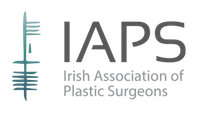Burns
Burns can be the most devastating injury sustained by humans. A major burn can be life-threatening, and leave life-long mental and physical scars. Even minor burns can be disabling.
Prevention is paramount. Burns commonly happen in the home. Kettles and cooking pots should be pushed to the back of the cooker or work-top out of reach of toddlers. Deep-fat fryers or chip pans should be turned off immediately after use and never left unattended. Candles should never be left near loose fabrics. Faulty electrical items should be disposed of. Many burns occur when under the influence of drugs or alcohol.
Prompt and correct first aid can minimize the effect of the burn. Remove the victim from the burning environment. Remove any hot or burnt clothing as they will keep heat in contact with the body. Then immerse the injured part in cold water for 10-15 minutes. This allows the heat in the skin to disperse through the cold water. Otherwise it would continue to penetrate more deeply through the skin. Do not coat the burn with oils, butter or other foodstuffs. If you need to bring the victim to medical attention, it is often comfortable to wrap the injured part in clingfilm as this is clean and readily available and will not stick to the wound or blisters. Seek medical attention promptly. Minor burns may be treated by your GP, or local accident and emergency department. More serious burns will need hospital admission under the care of a Plastic Surgeon who will decide if the patient needs transfer to a Burns Unit. If a burn has not healed within 2-3 weeks specialist attention should be sought.
A Burns Unit has a Multi-Disciplinary Team comprising surgeon, nurses, physiotherapists, dietician, pharmacist, psychologist amongst others. Support services are available. A useful website for those affected by burn injury is Changing Faces, which educates those injured, and those around them, in how to deal with life after a burn., particularly for those with disfigurement.
In Ireland, the National Burns Unit is in St James Hospital for adults, and in Our Lady’s Hospital for Sick Children in Crumlin, with Burns Units also in Cork University Hospital and University Hospital, Galway.
